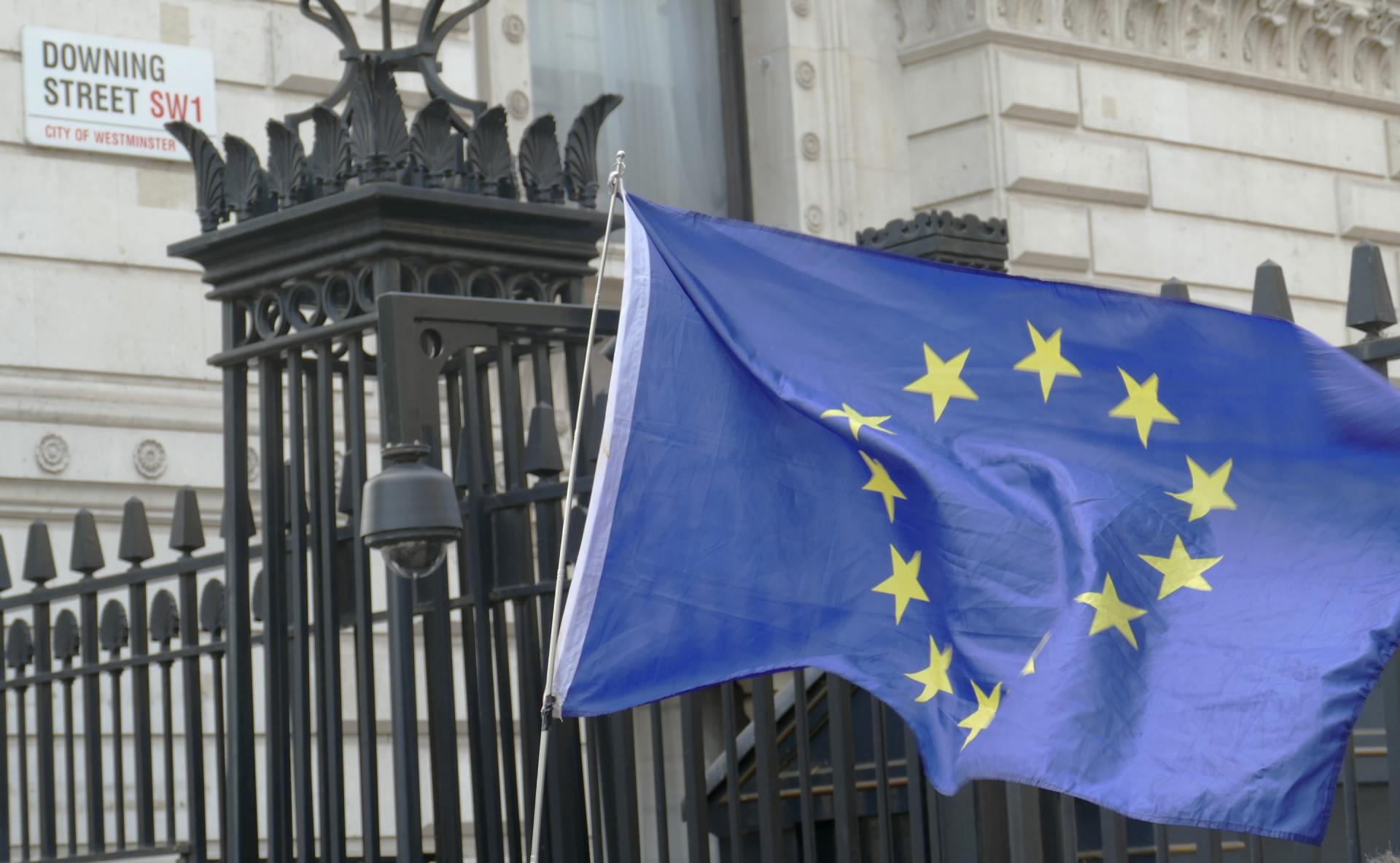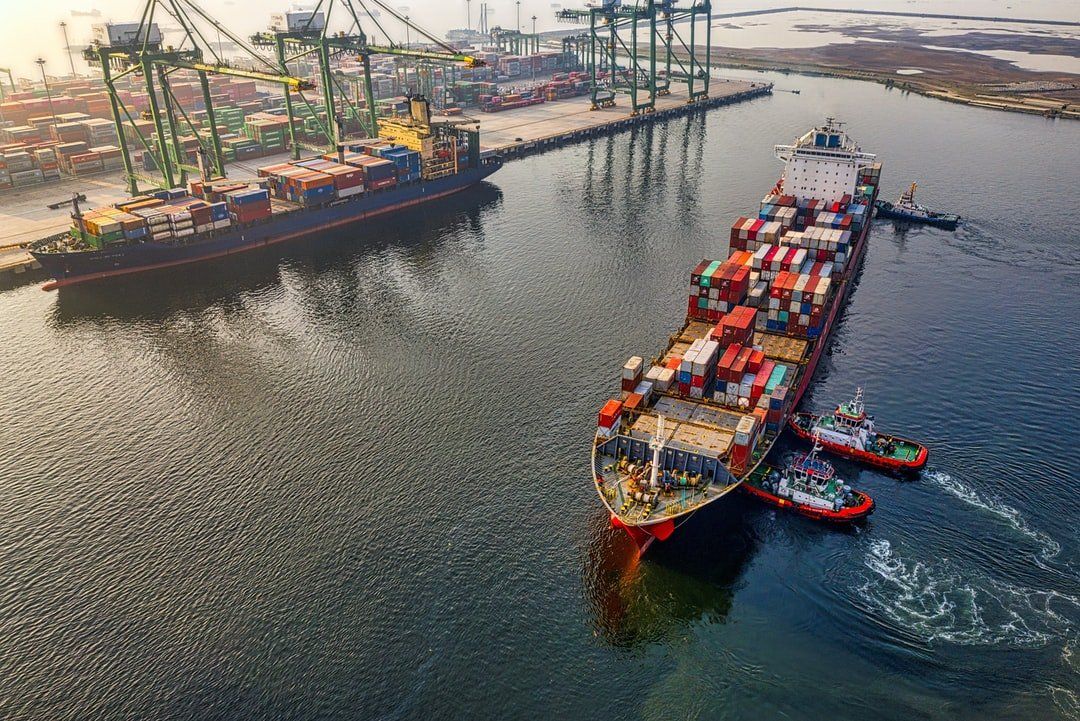Trading with the EU
Trading with the EU - Trade Matters
View upcoming dates ➝Trading with the European Union - Customs
View upcoming dates ➝Export Essentials
View upcoming dates ➝VAT in International Trade
View upcoming dates ➝Customs Warehousing & Duty Reliefs
View upcoming dates ➝Import Essentials: An Introduction to Importing
View upcoming dates ➝Tariff Classification Explained
View upcoming dates ➝ICC Incoterms 2020 Rules Explained
View upcoming dates ➝Creating a Winning Export Strategy
View upcoming dates ➝Understanding Free Trade Agreements
View upcoming dates ➝About Our Courses
Everything changed on 1 January 2021, and the way in which we deal European Union organisations has become more challenging as goods which in Fee Circulation in 2021 now have to cross international borders. This collection of courses looks at the European Union in light of the UK's departure from it.
Don't forget that Strong and Herd can also provide you with bespoke in-house training to suit your specific training needs. Simply contact us to discuss your complete requirements.
FAQ's
- In a recent webinar Strong & Herd presented you did you mentioned at one point that Duty won’t be payable until later, after any goods imported have arrived. How long will you be able to delay duty payment for? I understand under Postponed VAT Accounting you can wait six months (subject to submitting your entry) but does this apply to import duties as well?
Under HMRC scheme of delayed declarations importers in the UK bringing goods in from the EU from 1st Jan 2021 until 30 June 2021 can delay the customs full declaration, and the payment of import customs duty for up to 6 months from the date of arrival, eg arrives 30 March 2021 – full declaration by 30 September 2021. This doesn’t apply to all goods though, some goods will be controlled from 1st Jan 2021, eg firearms, animals, certain plant products, chemicals, other from 1st April 2021 like all animal and plant products and goods under import licences. This does not delay the payment of VAT though.
To use the delayed declaration simplification the importing company must use an intermediary who is CFSP approved, they must enter all the import customs information into their internal systems (called EIDR - Entry into Declarants Records) ready to complete the full declaration. At the time they complete the full declaration they should have a deferment account guarantee in place. VAT does not come under the delayed payment scheme.
Postponed VAT Accounting (PVA) means any UK VAT registered company can import goods and PVA the VAT – this is for all imports not just for arrivals from the EU. PVA means that in the financial tax period, determined by the date of arrival, the importer must calculate the amount of VAT due (based on the value of the import, freight, transit insurance, any customs duty to be paid and inland storage and transport costs) and submitted on their quarterly or monthly VAT return relevant to the arrival date. It goes in simultaneously as output/input VAT. They cannot wait until the full declaration is made to calculate or pay VAT. To handle PVA the importer must register on the UK government gateway CDS portal and download a VAT certificate – BUT, if they use the delayed declaration system with EIDR there won’t be any VAT Certificate raised during this period so they will have to work the VAT out themselves.
- If the UK leaves the EU without a trade deal will this mean customs declarations will be required at export and import?
When the UK leaves the EU customs declarations will be required whether there is a deal or not. There was speculation initially that the UK could secure a deal that included free movement of goods but without remaining inside the Customs Union or Single Market this isn't possible. This means companies will need to ensure they have sufficient information to
make the relevant declaration to customs possible.
- What does it mean - complete customs declarations?
There is a good, brief video on YouTube from HMRC summarising the key points Customs Declarations video. You can find options on learning more about customs declarations with Strong & Herd here How to Complete Customs Entries and don't forget there is a grant to help you buy the software, employ staff and undertake training HMRC Grant.
- The UK introduced some easements in 2019, for example the TSP registration, is that still relevant in 2020?
No. TSP - the Transitional Simplified Procedures - was introduced in case there was a no deal exit in October 2019, along with some other simplifications such as a Temporary Tariff. All of these easements were cancelled in February 2020 and new arrangements are and have been introduced. If you did register for TSP this is not valid or necessary any more.
- The UK has published a UK Global Tariff - is this just for the first 6-months of 2021 like the Temporary Tariff was in 2019?
No. The Temporary Tariff no longer applies, it was an easement introduced in case there was a no deal exit in October 2019 but the UK moved into a transitional arrangement instead so it wasn't needed.
The new UK Global Tariff (UKGT) is the UK's new permanent tariff schedule. Customs import duties in the UKGT may differ from the duty rates in the EU Tariff so you need to check the new UK version to establish your customs duty costs.
- UK has introduced an import simplification from January 2021 involving CFSP - what is CFSP and do I need to be approved?
CFSP is an existing UK Customs simplification - called Customs Freight Simplified Procedures - and permits the release of freight on arrival into the UK without a full customs declaration.
From 1 January 2021 to 30 June 2020 companies importing goods from the EU can elect to use CFSP to move goods to their premises quickly. But yes to use CFSP you have to be authorised by HMRC. The CFSP authorisation can be held either by the importing trader or the logistics company. Also a full declaration will be needed at a later date, no more than 6 months after the date of arrival and traders must enter all relevant information into their records to ensure an accurate full customs declarations is made.
- If we use the CFSP simplified procedures from 1 January 2021 does this mean we delay the payment of both duty and VAT on the imports?
CFSP does delay the payment of import customs duty until the full declaration has been submitted to customs but VAT must be accounted for within the tax period relevant to the month of physical arrival of the goods. So, for example, goods may arrive in January 2021, so VAT must be reported to HMRC in the Jan-Mar 2021 quarter if you are on quarterly VAT
returns but the full import declaration may not be made until May 2021 and that is when the duty will be paid. Some companies think this makes the use of CFSP as a simplified option too difficult to administer.
- I understand VAT will not have to be paid on imports from January 2021. Is this correct and is it only relevant to EU arrivals?
VAT is not going away. The mechanism for HMRC to collect VAT on imports will change from 1-1-2021. The change will apply to all imports not just to arrivals from the EU. Basically UK will begin allowing Postponed VAT Accounting (PVA) for UK VAT Registered businesses - which means not financial outlay of VAT at the time of arrival but your accounts must declare VAT due on imports on your monthly or quarterly VAT return in the period relevant to the date of arrival. PVA is open to all UK VAT registered traders but to use it you or your freight agent must select it this option on the import customs declaration. If you do not wish to use PVA and are clearing the goods at the time of arrival then you can pay the VAT as normal.
- Does my EU supplier have to get a UK EORI to be able to send goods to me?
No, unless your supplier is taking on the responsibilities as the importer and going to arrange the UK import customs entry and pay the import customs duties. In other words the supply is made under Incoterms 2020 Rules - DDP (Delivered Duties Paid) - which will make the EU supplier the importer of record. All other Incoterms Rules make the buyer/ importing company responsible for the import customs formalities and payment of duties so it would be them, the UK entity, that needs the UK EORI.
- Do I, a UK business, need an EU EORI to be able to send goods to my customers in the EU?
No, unless you are supplying and taking on the responsibilities as the importer and to arrange the EU import customs entry and pay the import customs duties. In other words the supply is made under Incoterms 2020 Rules - DDP (Delivered Duties Paid) - which will make you the importer of record. All other Incoterms Rules make the buyer/ importing company responsible for the import customs formalities and payment of duties so it would be them, the EU entity, that needs the UEUEORI.
- Last month I went to a Brexit prep workshop being run by a freight forwarder and they had a Customs Consultant present. On answering a question from the floor on whether commodity codes would change once the UK has left the EU he indicated that for export we would have to use a 10-digit number not the 8-digits we use today. I thought that was wrong, is this something you've heard?
UK export commodity codes will not be changing to 10 digits BUT what is changing is that currently intra-EU movements only need 8 digits to identify goods for both despatches (exports) and arrivals (imports) and once the UK leaves the EU goods will have to be formally imported into the EU. As you know, the EU import commodity code needed is the 10-digit number. The change from the 8-digit export code into the 10-digit import code may be sorted out by the EU importer but it is entirely possible that they might want the supplier to quote the full EU import code on the export paperwork. If you intend to export to the EU using the Customs Transit System, then you will have to ensure that the 10-digit code is declared into
the CTS computer tracking system. Another final thing to check is, if you have only exported to companies within the EU, that you have on record the correct Harmonised System (HS) code not the simplified EU Intrastat Combined Nomenclature (ICN).
- Will there be duty to pay at arrival or later so this is to do with the easements when will duty has to be paid?
Duty will have to be paid under the easements when you do your full supplementary declaration within the 6 months’ time frame so there will be duty to be paid on controlled goods so controlled goods would need to be a full declaration at the port of arrival so let’s say Dover for example , supplementary entry can be raised by yourselves or by your agent and this is when the duty will be accounted for, I have got a note here which is, however there is no reason at present why you cannot make a full declaration at the arrival point of non-controlled goods , it is entirely up to you if you want to go with the easements, if you want to or do a full declaration at the port of arrival you can do, there is no reason why not.
- After Brexit, what are the requirements for wooden pallets coming into the UK from the EU? Any help you can provide with regard to phytosanitary measures between the UK and EU would be appreciated.
Regarding the wooden pallets, they will have to be heat treated and stamped in-line with the International Standard for Phytosanitory Measures (ISPM) regulation No. 15 as all imports must be today. HM Revenue & Customs (HMRC) has provided detailed guidance on-line to cover these measures. For your wooden pallets you are looking at the regulations relating to WPM – Wood Packaging Material – that also covered the following:
- crates
- boxes
- cable drums
- spools
- dunnage
The UK authorities have said that though checks on WPM will continue to be carried out in the UK it will be on a risk-targeted basis only for shipments from the EU, so they do expect major changes as a result of Brexit.
Be aware, though, that the same will apply to UK wooden pallets and similar material being used in packing and transporting goods from the UK into the EU-27. Similar regulations will begin to apply to plants, plant products and other objects from the United Kingdom into the EU-27 governed by this Directive. All WPM moving between the UK and the EU must meet ISPM15 international standards by undergoing heat treatment and marking if there’s a no-deal Brexit and may be subject to official checks either upon or after entry to the EU.
- Could confirm that my understanding that exports from the UK to Norway and Switzerland will not change after 01/01/2021.
The export procedures to Switzerland and Norway may change depending on how you physically ship the goods today. Export entry out of UK, no change, and if they go by
airfreight, then no change. But if the goods are moving by road across the EU to Switzerland you will have non-Union goods from a non-EU country (UK) transiting the EU to a non-EU country so you’ll have to look at transit (NCTS). If you do road shipments, you may currently be using indirect export declarations – these will go 1.1.2021. Depending on the routing, Norway could change but if only UK/Norway involved there will not be any difference.
The other thing to consider is that you won’t be issuing EUR1 Forms and, unless the UK had a FTA with Switzerland and Norway (tricky as they can’t commit until they know UK deal with the EU as they are both in the EU Single Market and Norway in the EEA). EU Standards are extended into the EEA so if you must meet EU standards this could affect supplies and statements into these markets.
- Do we need to apply for an export licence to ship dual-use controlled products and technology into the EU come January 2021?
Yes – you will need an export licence to move dual-use controlled goods and technology into the EU from 1.01.2021. You can register for an Open General Export Licence (OGEL) now via the Export Control Joint Unit (ECJU) SPIRE website to permit you to do this. It is entitled Open General Export Licence (Export of Dual-Use Items to EU Member States.
Once you are registered you will be able to use it immediately from 1st January 2021. You must treat it like other OGELs and ensure it is declared on the export customs entries for physical deliveries to the EU27 of goods or technology and record any tangible transfer of technology on your technology transfer log. There are some exceptions to dual-use categories, and you must know that the goods are remaining in the EU and not being immediately shipped on without alteration. If the goods are going to be re-exported from the EU unchanged you will need an EUU and probably an Individual Licence (SIEL) though other OGELs may apply.
- We distribute goods made outside the EU into most EU Member States and some of our EU customers have raised an issue about product liability. They don't want product liability so they don't want to be a the EU importer. Is this a genuine concern?
Product liability generally lies with the producer of the product rather than supplier. That might be:
- the manufacturer (or the producer in the case of raw materials)
- the producers of components used in the product (but not if the fault was caused by the manufacturer's design or by the specification given by the manufacturer)
- anyone else who processes the product (but not someone who simply packages it without affecting it)
but also:
- for products originating from outside the European Union (EU), the importer who first imported the goods into the EU and possibly the manufacturer's representative in the EU
- any supplier who has affected the safety of the product (for example, by reconditioning it)
- any supplier who has made it appear that they are the producer by 'own-branding' the product.
If more than one business fits these categories, they can all be jointly liable.
EU customers/ distributors who currently take goods from the UK don’t have product liability as they distribute goods already imported unchanged. It also brings in the issue that goods moving from the EU to the UK product liability would be the UK importer, who previously would have been a end-customer or distributor.
















